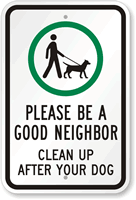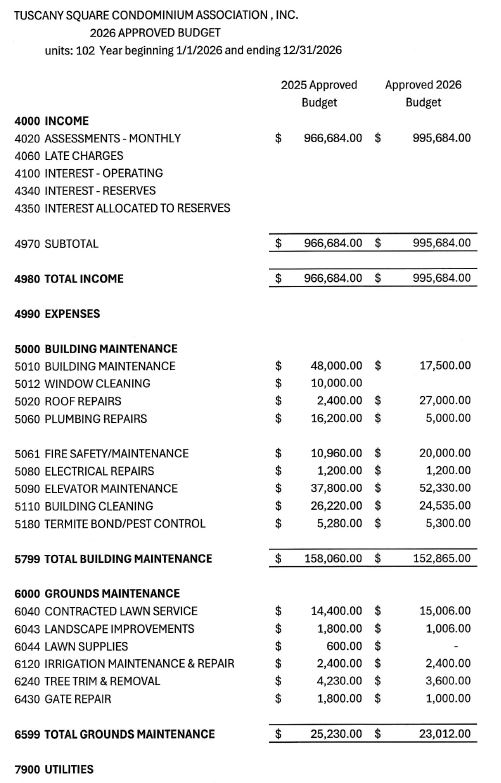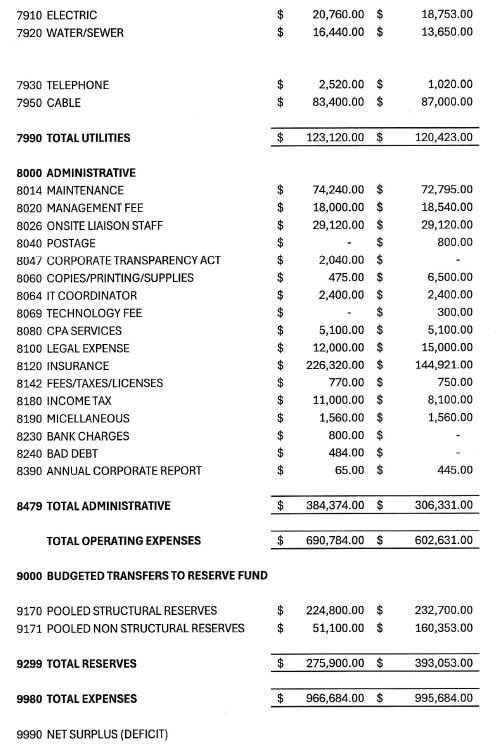
Emotional Support Animal Accommodation Request
Tuscany Square I Condominium Association, Inc.
Policies and Procedures for Disabled/Handicapped Owner, Tenant, or Guest to Request a Reasonable Accommodation for a Service/Support Animal
Background: Under the Federal and State Fair Housing Acts, an Owner, tenant or guest who is disabled/handicapped may request reasonable accommodation(s) to the Association’s rules, policies, practices, or services when such accommodation(s) may be necessary because of his/her disability/handicap. For more information on the rules pertaining to requests for reasonable accommodation, please review the “Joint Statement of the Dept. of Housing and Urban Development and the Department of Justice on Reasonable Accommodations under the Fair Housing Act” at https://www.justice.gov/crt/us-department-housing-and-urban-development
Objective: To establish policies and procedures for meeting the requirements of applicable state and federal law relating to disabled or handicapped individuals as they pertain to Service/Support Animals in Units and the Common Elements in the Condominium. The Association’s Declaration of Condominium and Rules and Restrictions (hereinafter “Condominium Documents”) provides that there shall be no more than two (2) four-legged pets in the Unit, to be limited solely to dogs (not to exceed 20 pounds) or cats, provided same are not kept, bred, or maintained for any commercial purpose, do not become a nuisance or annoyance to neighbors and are first registered with the Association. The only other pets permitted shall be birds and fish which shall be required to be within the boundaries of a Unit at all times and shall not become a nuisance or annoyance to neighbors.
Policy: The policy of the Board is to make reasonable accommodations for disabled or handicapped Owners, tenants and guests, in accordance with applicable state and federal fair housing laws, regarding Article 18.6 of the Declaration of Condominium and Rule 1 of the Rules and Restrictions. This policy applies to the extent that an Owner, tenant or guest intends to have a third animal, or a dog that exceeds 20 pounds, or an animal that is not otherwise permitted by the Declaration and Rules and Regulations.
Procedure For Making a Request For Accommodation
Submittal of Request: A disabled/handicapped Owner, tenant or guest must notify the Association of the request for a reasonable accommodation to allow a service and/or support animal in the common areas in the community and/or to avoid a restriction on pets and provide adequate documentation supporting the request in compliance with the Florida and Federal Fair Housing Acts. This applies to Owners, tenants, and/or guests visiting or residing on the property. It is the Owners’ responsibility to ensure that Owner(s), tenant(s), and guest(s), advise anyone who may require a reasonable accommodation to comply with the stated guidelines herein, prior to bringing an animal on the property, and to provide the Association with sufficient time to conduct a meaningful review of the request. For emotional support animals (“ESA”), the requested information must include a statement from a medical professional stating that the requesting party is physically or mentally disabled; explaining which major life activities are substantially impaired; explaining how the animal will ameliorate the effect(s) of the disability. The statement from the professional should also include: the certification or license number the physician or medical professional; the state of licensure; the medical professional’s name, business address, city, state and phone number, signature and the date of the signature. If the requesting party receives Social Security Disability benefits, provide a copy of the summary page with personal information redacted reflecting whether the disability is mental or physical. Additionally, the requesting party should provide the signed acknowledgement at the bottom of this document. The documentation should be delivered or mailed to the Association’s office at 424 Luna Bella Lane, Ste 132, New Smyrna Beach, FL 32168. The application cannot be approved until all required documentation is received by the Association.
If the animal is a service animal, and the disability is not obvious, the Association will ask these questions:
1.) Is the service animal a dog?
2.) If the task the animal is trained to perform is not obvious, is the animal required because of a disability?
3.) What work or task has the animal been trained to perform?
Please be advised that pursuant to Florida Statute Section 413.08(9), states, in relevant part:
A person who knowingly and willfully misrepresents herself or himself, through conduct or verbal or written notice, as using a service animal and being qualified to use a service animal… commits a misdemeanor of the second degree, punishable as provided in s. 775.082 or s. 775.083 and must perform 30 hours of community service for an organization that serves individuals with disabilities, or for another entity or organization at the discretion of the court, to be completed in not more than 6 months.
Further, on July 1, 2020, Florida Statute Section 817.265, was enacted which states:
A person who falsifies information or written documentation, or knowingly provides fraudulent information or written documentation, for an emotional support animal under s. 760.27, or otherwise knowingly and willfully misrepresents himself or herself, through his or her conduct or through a verbal or written notice, as having a disability or disability related need for an emotional support animal or being otherwise qualified to use an emotional support animal, commits a misdemeanor of the second degree, punishable as provided in s.775.082 or s. 775.083. In addition, within 6 months after a conviction under this section, a person must perform 30 hours of community service for an organization that serves persons with disabilities or for another entity or organization that the court determines is appropriate.
Further, Florida Statute Section 456.072(1)(pp) provides that it is grounds for discipline against a medical professional :
Providing information, including written documentation, indicating that a person has a disability or supporting a person’s need for an emotional support animal under
s. 760.27 without “personal knowledge” of the person’s disability or disability related need for the specific emotional support animal.
Association’s Procedure for Reviewing a Request for Reasonable Accommodation for an ESA: Upon receipt of the requested form and documentation (or information supplied) for a disabled/handicapped Owner, tenant or guest’s request for a reasonable accommodation(s) to the Association’s pet restrictions for an ESA, every effort will be made to have the request forms reviewed by the Association as quickly as possible, and the Owner, tenant or guest will be notified in writing of the Board’s decision. If additional information is required by the Association, the review may take longer, and the submitting Owner, tenant or guest will normally be so advised in writing. Additionally, it may be necessary for the Association’s legal counsel to review the documentation submitted in support of a request for a reasonable accommodation, which in turn, may require additional time to review and respond to the request. The Association will engage in the interactive process to obtain the necessary information to conduct a meaningful review of all requests.
If the request for an ESA is approved, any condition(s) of approval will be provided in writing. If disapproved, the reason for disapproval will be provided in writing.
Guidelines as to when medical documentation is required for an ESA and what type of medical documentation is required. With regard to ESA’s, the Association is entitled to obtain information that is reasonably necessary to evaluate whether a requested accommodation is medically necessary because of the requesting party’s disability/handicap.
If a person’s disability/handicap is obvious and if the need for the requested accommodation is also apparent, then the Association will not normally request any additional information about the requester’s disability/handicap or the related need for the requested accommodation.
If the requester’s disability/handicap is not obvious, after reviewing the submitted request form, the Association may request reliable information that is necessary to verify that the requester has a physical or mental impairment that substantially limits one or more major life activities (which isthe definition of a “handicap” under the Fair Housing Acts) and an explanation of how the animal ameliorates the effects of the disability. If information concerning the requester’s disability/handicap is requested by the Association, he/she must provide information verifying that he/she meets the foregoing definition of “handicap,” for example, by submitting proof that he/she isreceiving Social Security Disability benefits, or private disability benefits. Information regarding the nexus between the disability and the animal may still be necessary but information concerning the disability will generally not be requested. Absent disability benefits, the requester’s medical professional shall provide verification that the requesting party is disabled/handicapped, provide a description of the major life activities that are substantially impaired, explain the nexus between the animal and the disability/handicap, and provide the credentials of the physician or medical professional providing the statement.
If the requester’s disability/handicap is obvious, but the need for the accommodation is not apparent, the Association will request information that is necessary to evaluate the disability/handicap-related need/nexus for the requested accommodation. In this case, the Association will request reliable disability/handicap-related information from a medical professional that is necessary to evaluate the disability/handicap-related need for the accommodation (the nexus). The medial professional must have personal knowledge of the individual. The Association, may, if necessary, contact the medical professional to confirm the medical professional issued the letter.
The Association will not accept tags, certificates, or any other items purchased on-line or from any other source that purport to “certify” or “register” an animal as an emotional support or service animal. These items can be purchased by answering certain benign questions. The websites contain a disclaimer that none of the information provided by the requesting party is verified. Accordingly, these items are not sufficient to establish that someone is disabled or that an animal is a service or emotional support animal. Likewise, the Association will not accept a medical statement from a medical professional or company that advertises to write these letters after a one-time consultation or test.
The Association may request advice from legal counsel concerning any Owner’s, tenant’s or guest’s request for a reasonable accommodation. The requesting party consents to the disclosure of all documentation in support of the request to the Association’s legal counsel.
Unique Animals
The only permitted animals are dogs, cats, birds, and fish. Reptiles, rabbits, hamsters, gerbils, other rodents, barnyard animals, monkeys, kangaroos and other non-domesticated animals are not permitted.
If a requesting party is seeking to keep a unique type of animal that is not permitted, then the requesting party, through his/her medical professional, has the substantial burden of demonstrating a disability-related therapeutic need for the specific animal or the specific type of animal.
Maintaining an Emotional Support/Service Animal
Should a request for a reasonable accommodation to the pet restriction be granted, the Association reserves the right, pursuant to Florida law addressing nuisances and/or safety and health concerns, to withdraw this approval at any time should the emotional support/service animal become a nuisance to, or a threat to the health and safety of, others, which includes, but is not limited to: excessive barking; biting; aggressive behavior (including nipping and lunging); attacking persons or other animals; animal Owner’s, tenant’s or guest’s failure to immediately and properly dispose of excrement or waste (so long as the disability permits it); failure to comply with all state and local ordinances and statutes related to the animal (including any required licenses or tags); not maintaining the animal on a maximum six foot leash at all times when outside of the Unit so long as the disability permits the use of a leash; insect/extermination problems; sanitation/odor problems; and/or Owner’s, tenant’s or guest’s inability to control the animal. If the requesting party is unable to use a leash or carry the animal because of the disability, the handler must have control over the animal by voice control or some other means. This requires the Owner, tenant or
guest to ensure that the animal is properly controlled in all elevators and to take extra precautions when confined in small spaces. Additionally, the approval of the animal may be withdrawn if the requesting party is no longer disabled/handicapped. The animal may not be left unattended when outside the Unit and may not be tied or tethered to any objects outside. The Owner, tenant, or guest must maintain complete control over the leashed animal at all times when outside the Unit.
Should the animal become a nuisance to others, the Owner, tenant or guest will be asked to remove the animal from the premises and may be prohibited from bringing the animal back. The animal may not roam or wander. In the elevators, the animal must be under the handler’s control at all times.
Owner, tenant or guest is solely responsible for any and all damage caused by the animal, whether to person or property.
To clarify, and in addition to those restrictions stated above, should an emotional support animal and/or service animal be approved, the animal must be walked on a leash providing no more than six (6) feet of slack and may not be tied or tethered to any object outside. The owner of the animal must immediately pick up and dispose of all animal waste and excrement. Owner, tenant or guest is responsible for supplying his/her own waste removal bags. A violation of any of these reasonable restrictions is also grounds for immediate revocation of any approval requiring the immediate and permanent removal of the animal. The Board may amend these policies and procedures as necessary at any time and without notice. While emotional support and service animals are permitted on all parts of the Condominium and Association property, the Association requests that the requesting party be courteous of others and avoid areas or situations which may cause other owners, tenants, occupants and/or guests, discomfort or create unsanitary conditions. Animals are not permitted to relieve themselves on the sidewalks, parking lot or other hard surfaces in the community. Should this occur, Owner, tenant or guest must immediately and thoroughly clean the affected area.
If a support or service animal passes away or is no longer able to perform its intended function(s), the requesting party is permitted to replace the support or service animal so long as the requesting party remains disabled but he/she must notify the Association of replacement of the animal. All replacement animals must comply with the reasonable restrictions contained herein.
Often times, there are competing requests for reasonable accommodations that must be balanced. In order to accommodate a person’s request to maintain an emotional support/service animal and to accommodate those with animal allergies and/or phobias, further restrictions may be necessary depending upon the circumstances at any given time. You will be notified if any additional restrictions are necessary.
An approval of an emotional support animal and/or service animal is limited to the requesting party and his/her needs. If the requesting party no longer resides in this community, is no longer visiting or temporarily vacates the property, for whatever reason, the emotional support/service animal is not permitted to remain. The approval of an emotional support/service animal does not apply to a residence generally, but rather, is only approved for a particular person. If that person is not in residence, the animal may not be in residence.
All information received by the Association in conjunction with a disabled/handicapped Owner’s, tenant’s and/or guest’s request for reasonable accommodation will be kept confidential in compliance with Florida Statute section 718.111(12)(c)(3)(d). If any other tenant or owner inquires as to why a special accommodation appears to have been made, the Association representative’s response will be: “a reasonable accommodation has been granted as a matter of Florida and Federal law” or words of similar import. No additional information will be provided regarding the nature of the disability/handicap.
 The owners of the pet must pick up all solid wastes of their pet and dispose of such wastes appropriately. All dogs and cats must be kept on a leash no more than six (6) feet in length at all times when outside the Unit and shall be walked only within areas, if any, designated for such purpose by the Association or the Master Association. No pets may be kept in or upon any Limited Common Element appurtenant to a Unit (the balcony) when the owner of the pet is not in the Unit. The owner of a pet shall indemnify the Association and the Developer and hold them harmless from and against any loss or liability of any kind or character whatsoever arising from such owner’s having any pet upon the condominium Property. All owners of pets are required to clean up all pet droppings deposited on the Common Elements. If any pet owner fails to clean up after the pet, the Association shall perform such service or cause such service to be performed and charge the offending pet owner for the costs associated therewith.
The owners of the pet must pick up all solid wastes of their pet and dispose of such wastes appropriately. All dogs and cats must be kept on a leash no more than six (6) feet in length at all times when outside the Unit and shall be walked only within areas, if any, designated for such purpose by the Association or the Master Association. No pets may be kept in or upon any Limited Common Element appurtenant to a Unit (the balcony) when the owner of the pet is not in the Unit. The owner of a pet shall indemnify the Association and the Developer and hold them harmless from and against any loss or liability of any kind or character whatsoever arising from such owner’s having any pet upon the condominium Property. All owners of pets are required to clean up all pet droppings deposited on the Common Elements. If any pet owner fails to clean up after the pet, the Association shall perform such service or cause such service to be performed and charge the offending pet owner for the costs associated therewith.
